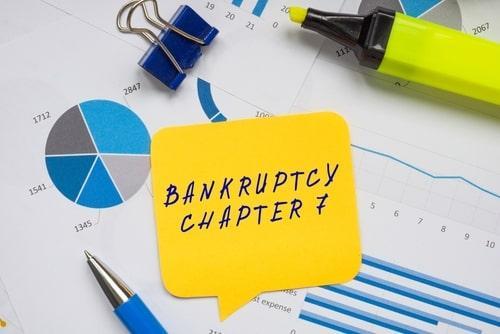The Means Test: Do I Qualify for Chapter 7 Bankruptcy?
 People with significant debts may qualify for multiple types of debt relief, and in many cases, bankruptcy is the best option. Those who plan to file for bankruptcy will often choose to file under Chapter 7, since this will allow most types of debts to be discharged/eliminated within just a few months. However, debtors will need to meet certain requirements to qualify for debt relief under Chapter 7. One of the most important criteria is the means test, which measures a person’s financial situation to determine whether they have the ability to repay some of their debts.
People with significant debts may qualify for multiple types of debt relief, and in many cases, bankruptcy is the best option. Those who plan to file for bankruptcy will often choose to file under Chapter 7, since this will allow most types of debts to be discharged/eliminated within just a few months. However, debtors will need to meet certain requirements to qualify for debt relief under Chapter 7. One of the most important criteria is the means test, which measures a person’s financial situation to determine whether they have the ability to repay some of their debts.
What Is the Means Test?
The means test is used to determine if you have enough disposable income left over after paying essential expenses related to housing, food, transportation, etc. By looking at your income and expenses, the means test measures whether you have enough money in your monthly budget to repay at least some of what is owed to your creditors. If not, then you may be eligible for a fresh start through Chapter 7 bankruptcy.
How Does the Means Test Work?
The means test starts with calculating your current monthly income (CMI). To do this, the total income you earned during the six-month period before filing for bankruptcy will be added together, excluding Social Security payments and public benefits. That number is then divided by six to determine your CMI. If your CMI is less than the median income in your state, then you will automatically pass the means test. In North Carolina, the median annual income for bankruptcy cases filed after November 1, 2022 is $55,621 for a single person. The median income increases based on household size: $69,303 for a married couple or a household of two people, $80,895 for a household of three people, and higher amounts for households with more people.
If your income is above the median income, then further calculations must be done to determine if you can still qualify for Chapter 7 bankruptcy. This involves subtracting certain allowed expenses (including food and clothing allowances, out-of-pocket healthcare expenses, housing and utilities, vehicle ownership expenses and other transportation costs, taxes, life insurance, and childcare costs) from your CMI to determine the amount of disposable income that will be available to repay creditors. If there is very little left over after these deductions are made, then you will most likely be able to file a Chapter 7 petition (assuming all other requirements are met). Generally, if your disposable income would not be sufficient to repay more than 25 percent of your total unsecured debts over five years, then you will qualify for Chapter 7.
Contact Our Charlotte Chapter 7 Bankruptcy Attorney
The means test is an important consideration that will determine whether you can qualify to discharge your debts through Chapter 7 bankruptcy protection. By understanding how the means test works, you can decide whether you should pursue bankruptcy or explore other options for debt relief. Consulting with an experienced Fort Mill bankruptcy lawyer at Blossom Law PLLC can help you ensure that all applicable laws are taken into account and that all legal steps are taken properly as you prepare to file for bankruptcy. We will work with you every step of the way to help you achieve a fresh financial start. Contact us today at 704-256-7766 to set up a free consultation and get started on the road to financial stability.
Sources:
https://www.nerdwallet.com/article/finance/bankruptcy-means-test
https://www.uscourts.gov/sites/default/files/form_b_122a-2.pdf
https://www.justice.gov/ust/eo/bapcpa/20221101/bci_data/median_income_table.htm


 704-BLOSSOM
704-BLOSSOM

